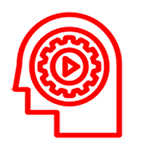The Psychology of Human Sexuality
Introduction
Human sexuality is a profound and multifaceted aspect of our lives. It intertwines biology, psychology, culture, and personal experiences, shaping how we perceive ourselves and connect with others. Exploring the psychology of humans offers insights into behavior, emotional intimacy, and societal norms.
In this article, I’ll delve into key psychological elements influencing why understanding a subject is essential.
What Is Human Sexuality?
Human sexuality encompasses the mind, behaviors, and emotions associated with sexual fascination, hobby, and character. It’s impacted by way of an aggregate of organic drives, psychological additives, and cultural desires.
While sexual orientation and inclinations regularly come to intellect, human sexuality also includes emotional intimacy, gender identity, and the way people express their desires.
Psychological Theories of Human Sexuality
Psychological Theories of Human Sexuality
Several psychological theories attempt to clarify human sexuality:
Psychoanalytic Theory
Sigmund Freud’s psychoanalytic theory recommends that sexual desires are established in oblivious conflicts and childhood experiences. He contended that uncertain psychosexual stages seem to shape adult behaviors and preferences.
Cognitive-behavioral Theory
This theory emphasizes the part of learned behaviors and cognitive patterns in forming sexual attitudes and actions. For instance, societal fortification or individual experiences can impact preferences or aversions.
Social Learning Theory
According to this theory, people learn sexual behaviors and standards through observation and imitation of societal and social part models. Media, family, and peers play significant roles in this process.
Biopsychosocial Model
This model integrates biological, psychological effects, and social variables to comprehensively understand human sexuality. It recognizes that sexuality is complex, influenced by everything from genetics to cultural norms.
Factors Shaping the Psychology of Human Sexuality
| Factor | Description |
|---|---|
| Biological Influences | Hormones (testosterone, estrogen) and brain structures (e.g., hypothalamus) control sexual behavior. |
| Emotional and Psychological | Emotional health affects libido; stress suppresses, while positive self-image enhances satisfaction. |
| Cultural and Societal Norms | Cultural beliefs shape acceptable or taboo expressions of sexuality, varying across generations. |
| Personal Experiences | Trauma, relationships, and childhood influence sexual outlook; positive experiences build confidence. |
Biological Influences
Hormones such as testosterone and estrogen play a basic part in sexual drive and function—moreover, brain structures like the hypothalamus control sexual arousal and behavior.
Emotional and Psychological Factors
Emotional well-being straightforwardly impacts sexual health. Stress, anxiety, and depression can smother libido, whereas a positive self-image regularly improves sexual satisfaction.
Cultural and Societal Norms
Cultural beliefs and societal desires essentially impact how people express their sexuality. What’s considered acceptable or unthinkable can vary widely over cultures and generations.
Personal Experiences
Trauma, relationships, and childhood shape how individuals view and lock in with their sexuality. Positive fortification frequently cultivates a solid sexual outlook, whereas negative experiences can create lasting psychological barriers.
The Role of Human Sexuality in Relationships
Understanding the psychology of human sexuality is crucial for fostering healthy and satisfying relationships. Open communication about desires, boundaries, and concerns builds emotional closeness and shared regard. Psychological compatibility frequently reinforces the association between partners, clearing the way for a deeper bond.
Sexuality and Mental Health
Sexuality and Mental Health



